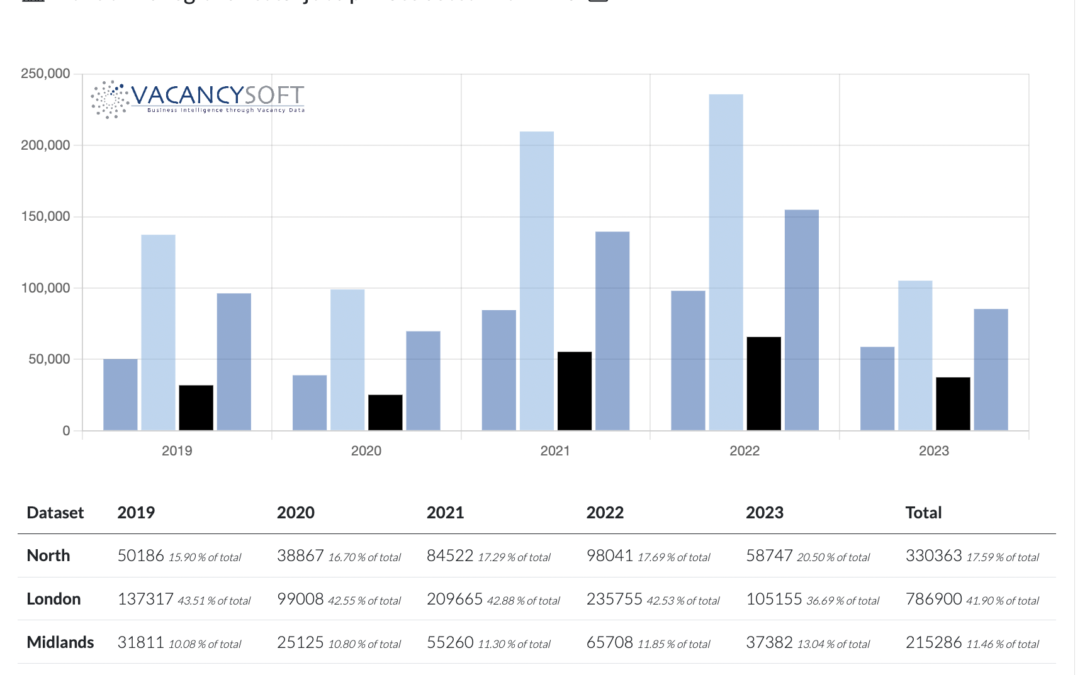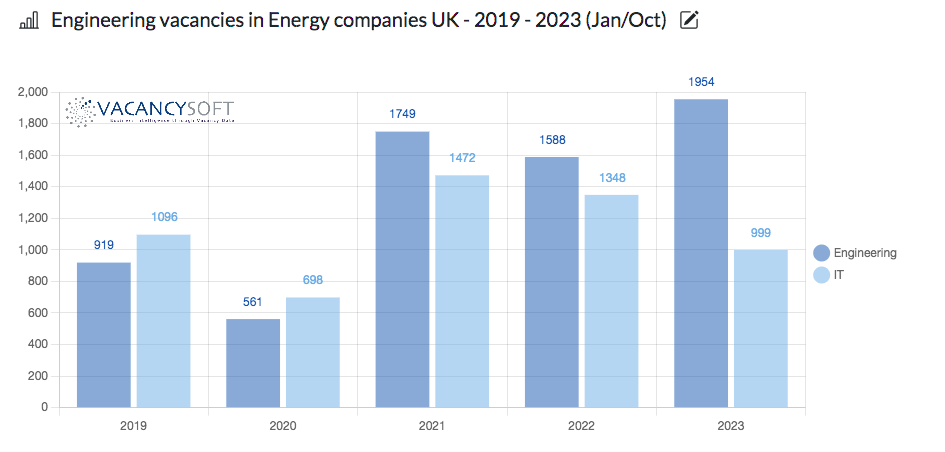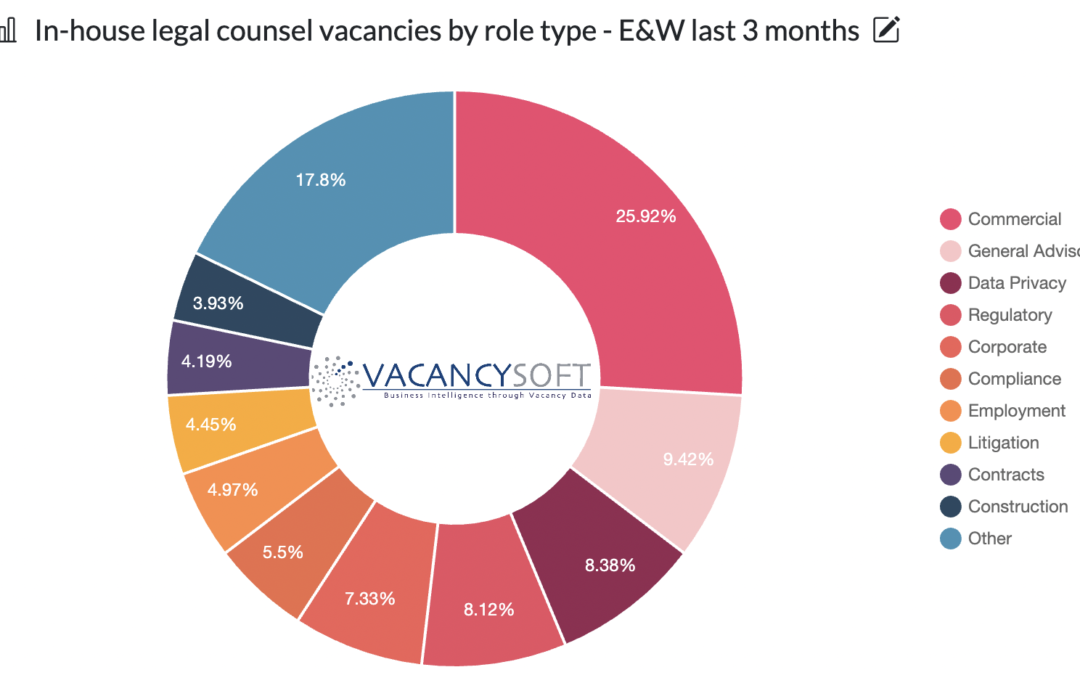
The slowdown in the technology sector has generally also been felt in gaming, with this year being 55.8% down on last year. Nonetheless, 2023 is 31% up on 2019, showing the underlying trend is upward. As a result, Gaming has hit 5.4% of all vacancies across tech companies, up from 3.5% in 2019 according to the latest UK Technology Labour market trends report by Talent Alpha and market data analysts Vacancysoft.

Fixed-Term Contract Scientific vacancies remain relatively stable, maintaining a 5.3% share of all scientific vacancies. Equally, this represents the highest share observed since 2021, suggesting a continued demand for temporary scientific roles, despite a sharp fall in perm vacancies, according to the latest Life Sciences Labour Market Trends report with CPL and Vacancysoft.

As the dust settles on the decision to cancel HS2, while the political fallout may prove high across the regions, the economic consequences are still unclear. By the same token, what is clear is the fact that over the past five years, the trend of regionalisation has taken effect and increasingly, businesses are expanding teams away from the capital. In 2023 this trend has seen a high point, in the sense that 64% of all vacancies in the private sector can now be found outside the capital, up from 56% pre-pandemic.

To say the war in Ukraine has caused the dysfunction in the UK’s energy strategy to be exposed is an understatement. Renewable energies, whilst in unit cost terms are coming down, don’t generate sufficient power all year round to be viable. What this had meant is the UK would be generating a surplus over summer, whilst buying power from the continent over the winter. Up until the Ukraine war, that had worked and had meant the long-term storage facilities at rough had been shut down for example, as power had always been available from the continent.

Keeping an eye on regulatory changes impacting your sector is a key way to stay one step ahead of the market. Recently announced, the Data Protection Act 2023 has caused a rise in hiring data privacy lawyers, making it the top skill in demand for in-house legal counsel nationwide. Data Privacy now accounts for 8.4% of all in-house legal vacancies, surpassing other specialist functions.







